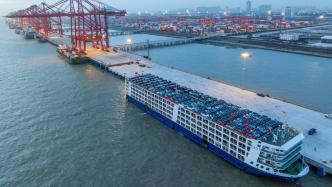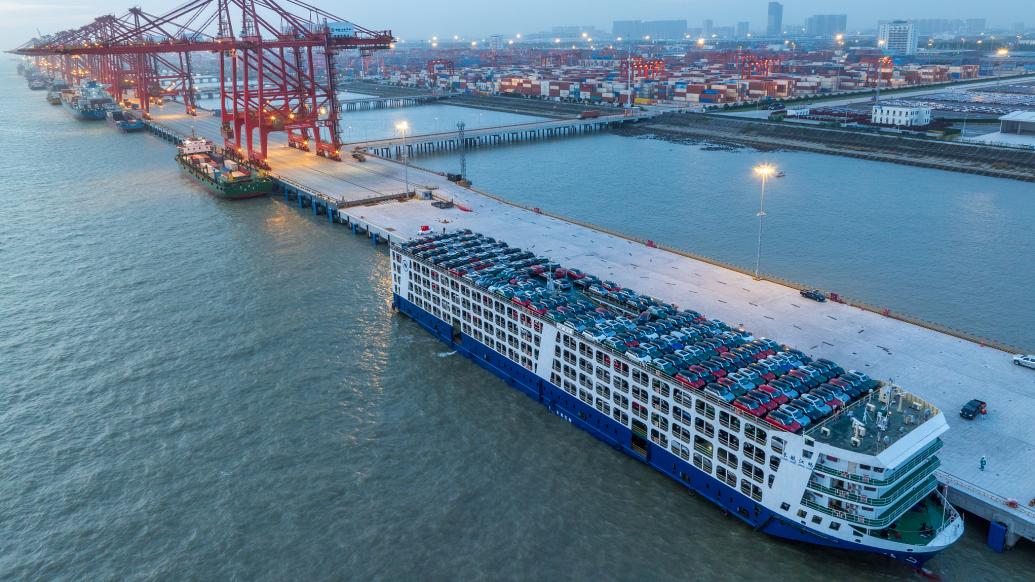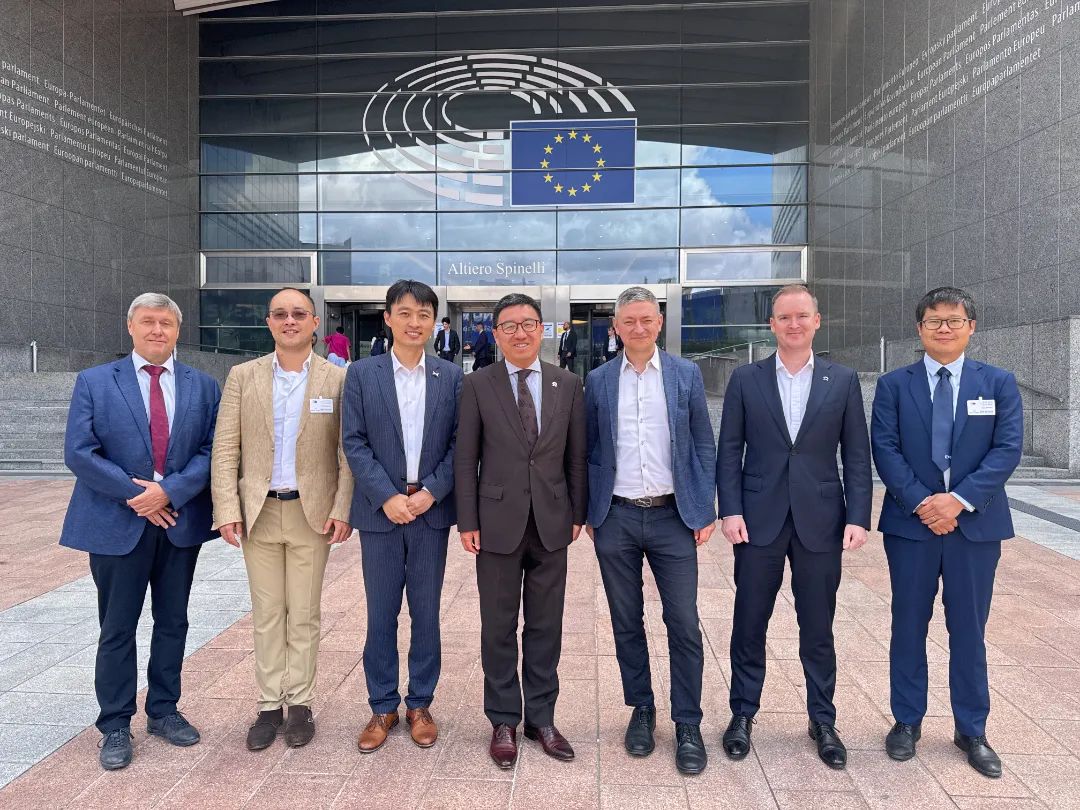
On July 4, 2024, the European Commission issued an announcement stating that after a nine-month anti-subsidy investigation into Chinese electric vehicles (BEVs), the European Commission decided to impose a temporary anti-subsidy tax on imports of electric vehicles from China.
The temporary tariffs will come into effect on July 5, 2024 and last for up to four months, during which time EU member states will vote on whether to convert them into formal tariffs lasting five years.

On April 19, 2024, at the International Container Terminal of Taicang Port Area of Suzhou Port, a large number of new energy vehicles were neatly arranged and were being shipped to all parts of the world.
The temporary tariffs apply to some Chinese manufacturers, namely BYD 17.4%, Geely 19.9%, SAIC 37.6%. Other Chinese manufacturers that cooperate but are not sampled will be subject to a weighted average tariff of 20.8%, and non-cooperative electric vehicle manufacturers will be subject to a tariff of 37.6%.
The provisional tariffs were slightly reduced compared to the rates previously disclosed on June 12, 2024, based on comments from interested parties regarding the accuracy of the calculations.
On July 5, 2024, SAIC Group announced that in order to effectively safeguard its own legitimate rights and interests and the interests of global customers, it will formally request the European Commission to hold a hearing on China's temporary anti-subsidy tax measures on electric vehicles and further exercise its right of defense in accordance with the law.
SAIC Motor said that on June 12, 2024, the European Commission released a preliminary ruling information disclosure, calculating a subsidy rate of 38.1% for SAIC Motor. SAIC Motor quickly submitted a defense against the calculation errors in the preliminary ruling disclosure. On July 4, the European Commission officially announced the preliminary ruling results, announcing a tax rate of 37.6%, and planned to impose a temporary anti-subsidy tax accordingly. SAIC Motor will make further defenses in accordance with the law.
The defense includes: The European Commission's anti-subsidy investigation involves commercially sensitive information, such as the investigation requires cooperation in providing battery-related chemical formulas, which is beyond the scope of normal investigation. The European Commission made mistakes in determining subsidies, such as including subsidies for new energy vehicle purchases given to domestic consumers in the calculation of subsidy rates for sales in the EU. During the investigation, the European Commission ignored some of the information and defense opinions submitted by SAIC, and made adverse presumptions based on the so-called "non-cooperation in the investigation" in Article 28 of the Basic Anti-Subsidy Regulation, thereby inflating the subsidy rates of multiple projects.
The global automotive industry is accelerating into a new era of electrification and intelligence. Over the past decade, SAIC has invested nearly 150 billion yuan in research and development, obtained more than 26,000 valid patents, and successfully launched the "seven major technology bases" with internationally leading technology levels, creating core technological competitiveness for the new smart electric track. This is the fundamental reason why SAIC MG is popular in Europe. SAIC opposes the artificial establishment of trade barriers for new energy vehicles and calls for a fair and competitive market order. Only through open dialogue and cooperation can China and Europe accelerate the gathering of innovative forces and jointly build a global green and low-carbon economy.


